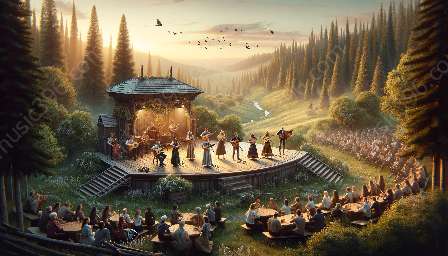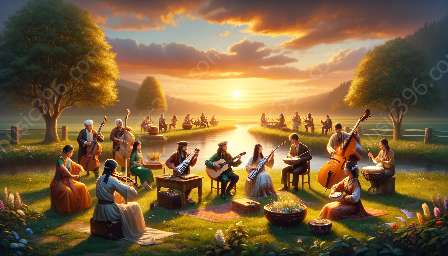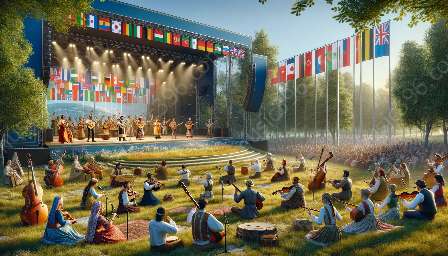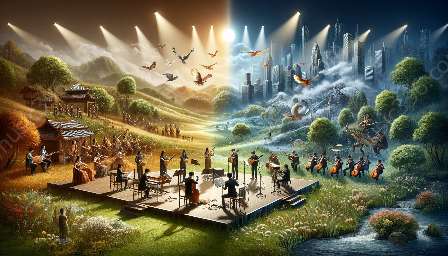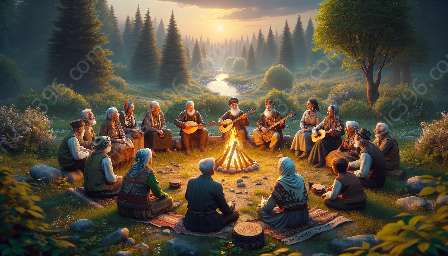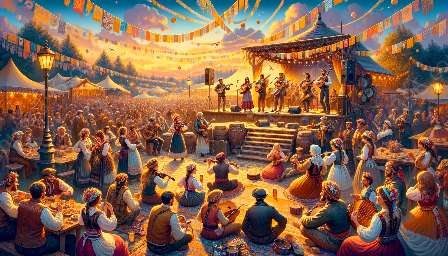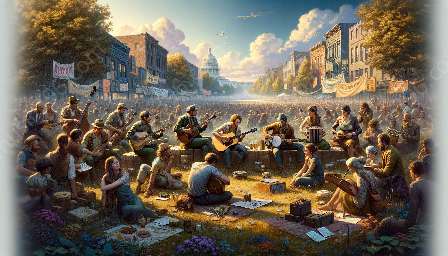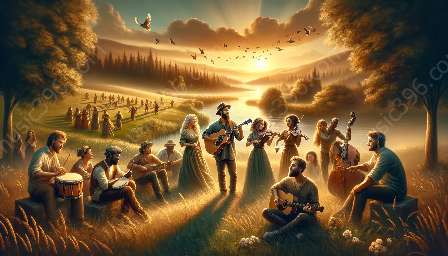Folk music traditions have played a significant role in shaping the tourism industry in different regions of the world. These traditions not only attract visitors but also contribute to the preservation of cultural heritage and the social fabric of contemporary society.
Folk Music in Contemporary Society
Folk music has maintained a strong presence in contemporary society, serving as a means of cultural expression and identity. In an increasingly globalized world, folk music provides a unique insight into the traditions, values, and histories of diverse communities. Furthermore, it serves as a bridge between generations, preserving a sense of continuity and belonging within societies.
Folk & Traditional Music
Folk and traditional music encompass a wide range of genres and styles that have been passed down through generations. These forms of music often reflect the experiences, emotions, and aspirations of specific cultural groups, capturing their essence and worldview in musical form.
Impact on Tourism Industry
The impact of folk music traditions on the tourism industry is undeniable. Many regions around the world have leveraged their folk music heritage to attract visitors and create unique tourism experiences. Whether through music festivals, cultural performances, or heritage sites, folk music has become a vital component of many tourism offerings.
Cultural Preservation
One of the primary contributions of folk music traditions to the tourism industry is the preservation of cultural heritage. Visitors are drawn to destinations that showcase authentic expressions of local culture, and folk music serves as a living testament to the traditions and customs of a community. By participating in folk music experiences, tourists contribute to the preservation and appreciation of these traditions.
Enhanced Visitor Experience
Folk music adds a layer of depth and authenticity to the overall visitor experience. It allows tourists to immerse themselves in the traditions and values of a particular region, fostering a deeper connection with the destination. Whether through interactive performances, workshops, or storytelling, folk music creates opportunities for meaningful cultural exchange between visitors and local communities.
Economic Impact
Folk music traditions also have a significant economic impact on the tourism industry. They contribute to the cultural economy of a region by generating employment opportunities for musicians, artisans, and event organizers. Additionally, folk music events and attractions often spur local business development, leading to increased tourism revenue and economic growth.
Regional Examples
Examples of the influence of folk music traditions on the tourism industry can be found across various regions:
- Appalachian Region, United States: The rich tradition of Appalachian folk music has become a focal point for heritage tourism, with music festivals such as the National Oldtime Fiddlers' Contest drawing visitors from around the world.
- Scotland: Scottish folk music plays a vital role in attracting tourists to the region, with events like the Highland Games and the Edinburgh Festival showcasing traditional music alongside cultural activities.
- Ireland: The Irish music tradition, including genres such as sean-nós singing and traditional fiddling, is a key draw for tourists, contributing to the cultural identity of the country and its appeal as a tourist destination.
Conclusion
Folk music traditions hold immense value in contributing to the tourism industry and enriching contemporary society. They serve as authentic expressions of cultural heritage, enhance the visitor experience, and contribute to the economic prosperity of various regions. By recognizing and celebrating the significance of folk and traditional music, communities can continue to leverage these age-old traditions to create vibrant and culturally rich tourism offerings.


